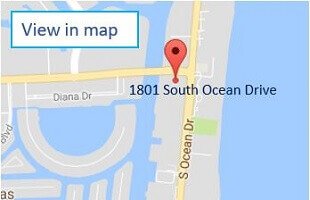Or sign in with
Content
In the process, you will be able to better maintain your abstinence and find it easier for you to recover. Someone in recovery may experience the mental signs of relapse after a period of poor self-care. You may feel dissatisfied with your progress and discontented in your disintegrating routine. A person who doesn’t have a routine and structure is more likely not to use it again.
Long COVID: major findings, mechanisms and recommendations.
Posted: Fri, 13 Jan 2023 08:00:00 GMT [source]
These strategies are formulated in drug rehab and can be practiced safely within a transitional housing situation. In this stage, you are battling yourself, constantly fighting an inner war between not using and using. You might begin bargaining with yourself, replacing one substance with another or you might begin to rationalize the use of drugs and alcohol by minimizing the consequences. You might also start permitting yourself to use a substance once or twice a year, thinking you’ll be able to control your usage habits.
For one, you might be tempted to use again “just this once” as a means of celebrating. Negative emotions like sadness, guilt or anger are often core reasons why people begin abusing substances in the first place. When these emotions crop up again during recovery, the brain remembers dealing with them using drugs or alcohol and prompts cravings. Recovery from addiction comes with a variety of obstacles and challenges.
For instance, the death of a loved one can easily trigger a relapse in a recovering addict. Some, people struggling with drug and alcohol addiction feel as though they https://ecosoberhouse.com/article/types-of-relapse-triggers/ can’t mix and mingle without the use of substances. A significant amount of people struggling with substance abuse find it difficult to resist relapse triggers.
For many people, recovery is a lifelong battle and recovery process that never truly ends. A trigger is social, psychological, and emotional situations and events that compel an addicted person to seek their substance of choice, eventually leading them to relapse. When an addicted person uses drugs or alcohol for a prolonged period of time, it changes the brain—eventually associating certain stimuli with the desire to drink or do drugs. A relapse prevention plan also puts clear plans into place to address drug and alcohol use if it happens.
Not everyone will relapse, but for some, it can be a part of the recovery process. To fully recover from addiction, you must modify the harmful behavioral and thought patterns in your life. If you relapse, it’s a red flag that you need to get with your doctor or treatment provider to resume treatment or modify your existing treatment plan. Gatehouse Treatment would like to help you overcome your relapse triggers. We propose you take a moment to learn about how addictive triggers can impact your life. In doing so, you will be able to spot the different signs of addiction and protect yourself better in the future.
Our relapse prevention program in Orange County is specifically designed to provide education on the different stages of relapse and how to prevent them successfully. We are here to help you maximize your chances of sustaining lasting sobriety. Connecting with others in meaningful ways and increasing positive experiences is also essential. Additionally, it is beneficial to set clear and healthy boundaries with individuals in your network who still use drugs or alcohol.
Oftentimes, triggers are reminders that put people in a mental and emotional place of distress, pain, anger, frustration, and other strong emotions. In the case of addiction and recovery, triggers are often some sort of internal or external stimulus that causes the former addict to desire to use drugs or alcohol again.
These typically involve people in your recovery support circle who can help lead you back to a life that is free of substance abuse and help you get back on track. Addiction relapse triggers in drug and alcohol abuse recovery are quickly becoming a major concern for inpatient and outpatient treatment addicts. Substance abuse triggers are internal and external cues that cause a person in recovery to crave drugs and often relapse or lapse. Hathaway Recovery is a holistic addiction treatment center that has years of experience.
When one is bored or feeling isolated, they are left with themselves, and as they say, an addict alone is in bad company. When one is bored or isolated they are left with their own thoughts and emotions, which often do not want to be heard or felt. Some people experience a whirlwind of emotions when seeing old friends and loved ones, which can trigger the desire to have a drink. Other people may become so stressed out by the push to perform at school or work that they are tempted by the feelings produced by stimulants. Expecting triggers and planning to cope with them effectively is the best way to defend against addiction relapse.
The cognitive challenge is to acknowledge that recovery is sometimes hard work but addiction is even harder. If addiction were so easy, people wouldn’t want to quit and wouldn’t have to quit. They occur when the person has a window in which they feel they will not get caught.

 1801 South Ocean Drive, Suite C Hallandale Beach, FL 33009
1801 South Ocean Drive, Suite C Hallandale Beach, FL 33009
For more information call us:
(786) 797.0441 or or: 305 984 5805